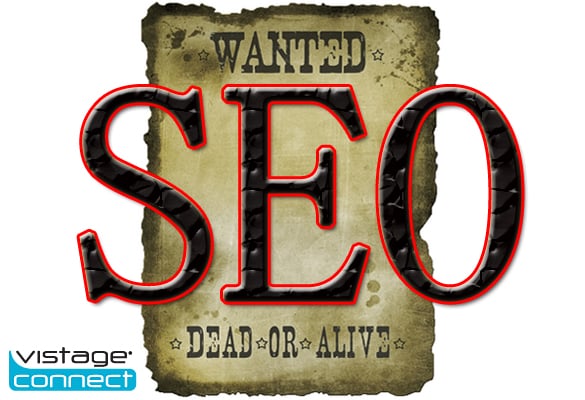Hey, Quit Searching on How to HATE!!! Why Do Small Businesses Hate SEO?


SEO, SEO, SEO. If you’ve done any sort of online marketing in the past five to ten years (and of course you have) then you’re probably familiar with the concept of search engine oprtimization (SEO).
Also called search marketing, SEO is the science (or art) of getting a website to the number one spot on a Google search. Sure, there’s also Bing, and Yahoo, but most searches are performed through Google, so if you want people to visit your website (and buy stuff), you need to make sure they find you when they search Google.
As the 2000s wore on, search engine marketing got more and more complex, and many people got good at gaming the system — that is, to rig it so that their sites would always top Google searches, whether or not they even had anything of value to offer. So, Google got in the habit of changing its search algorithms every few months, to thwart these parasites (and, no doubt, to keep everyone else on their toes, too).
The rise of social media like Facebook and Twitter has changed SEO’s dominance in online marketing a bit. In 2010, Facebook became the Internet’s most-visited website, beating out Google for the first time. Attention began to shift. Many online marketers began to focus more on social marketing than search marketing.
And as for SEO in 2012, well … that game’s gotten a lot harder. Google has worked to personalize its searches, meaning that searchers find results specific to them, and not universal to the entire Internet. That upends the traditional SEO game plan in a huge way, although it’s arguably beneficial to small businesses, since it favors more local searches.
Over at Search Engine World, Adam Stetzer wrote a great piece outlining in more detail just why small businesses hate search marketing. To wit:
- “The Rules Keep Changing.” Every year — in fact, several times a year — Google changes its algorithm. And nobody knows what those algorithms are in the first place. So, even if you have great SEO today, it’s unlikely you can maintain that top spot unless you work at it every day.
- “The ROI Calculation Is Difficult.” The standard advertising complaint, but still a big red flag for many economy-minded small business leaders. “According to Google’s rules, SEO vendors can’t promise ranking,” Stetzer writes. “Therefore, vendors can’t really promise ROI. In what other business is that acceptable?”
- “Fear of Ending Up on Google’s Blacklist.” If the SEO expert you hire uses “black hat” methods that don’t have Google’s official sanction, you run the risk of having your entire site blacklisted and banished from Google altogether. Remember what happened to JCPenney last year?
- “SEO Seems Overly Technical.” It doesn’t help that most experts speak in an ever-changing jargin that’s probably designed to elevate their perceived value. And it needs frequent updating; most small businesses simply don’t have the time to do it — or the resources to hire an expert.
- “SEO Doesn’t Work.” Particularly if you’re just starting out with SEO, you’re facing a ton of challenges. It’ll be hard to grab that top spot on Google; you’ll have a ton of competition. “On a competitive keyword phrase you can be looking at years of effort to make it to position 1, if ever. For a Fortune 100 company with billions of Wall Street dollars at its disposal, this may be OK. But not on Main Street.”
What do you think? Do you work to make sure your company’s website ranks high on the search engines? Is SEO an issue for you — or do you dismiss it, or perhaps focus your online marketing efforts elsewhere (like Facebook or paid advertising)?
This topic and more are included in the Vistage Connect™ peer advisory sessions. Learn more.
Nathan Denny is a professional writer who’s published articles on business, technology, politics, travel, and many other topics. Contact him at nathan@nathandenny.com.
Category: Customer Engagement
Tags: Market, Sales, Social Media, social media marketing


I’m baffled seeing these articles about how small businesses hate SEO or how SEO doesn’t help the smaller business. I own a small local business and I wouldn’t be any where without SEO… It has turned my business around and with the right techniques and strategies, SEO can work for anyone.
You need to know what your goal for SEO is (or any marketing tactic).
If you have a site with lots of rich content, and you want people in your target market to see that content, learn about you and then decide if you would be a good person to work with, then SEO is invaluable.
If you have a very generic product or service, and your website is an 8 page brochure that looks a lot like your competitor’s websites, then SEO is going to get you a lot of price shoppers.
Being good at SEO, or creating rich content is difficult. If you are looking for a quick fix source of leads — you are going to hate it.
To piggy back on comment made by @blfarris:disqus , SEO can be a strong revenue driver, but it can’t be your only answer when it comes to marketing. Simply put, SEO can never be your only value add. SEO just gets customers in the door. If you want first time visitors to convert on your site you need excellent design, solid content, conversion rate optimization and perhaps social media marketing. SEO, for many successful websites is only a part of the marketing equation.
Forget SEO, If you want to get a high ranking just build a site people actually want to visit.
THIS!! Seriously, THIS!!! if you did nothing but make sure your site made your visitors happy you’d be a 99% better SEO than those who focus on just everything else.
[…] “Why Do Small Businesses Hate SEO?” • Vistage International’s Executive Street Blog • March 4, 2012 • Excerpt: “The rise of social media like Facebook and Twitter has changed SEO’s dominance in online marketing a bit.” […]